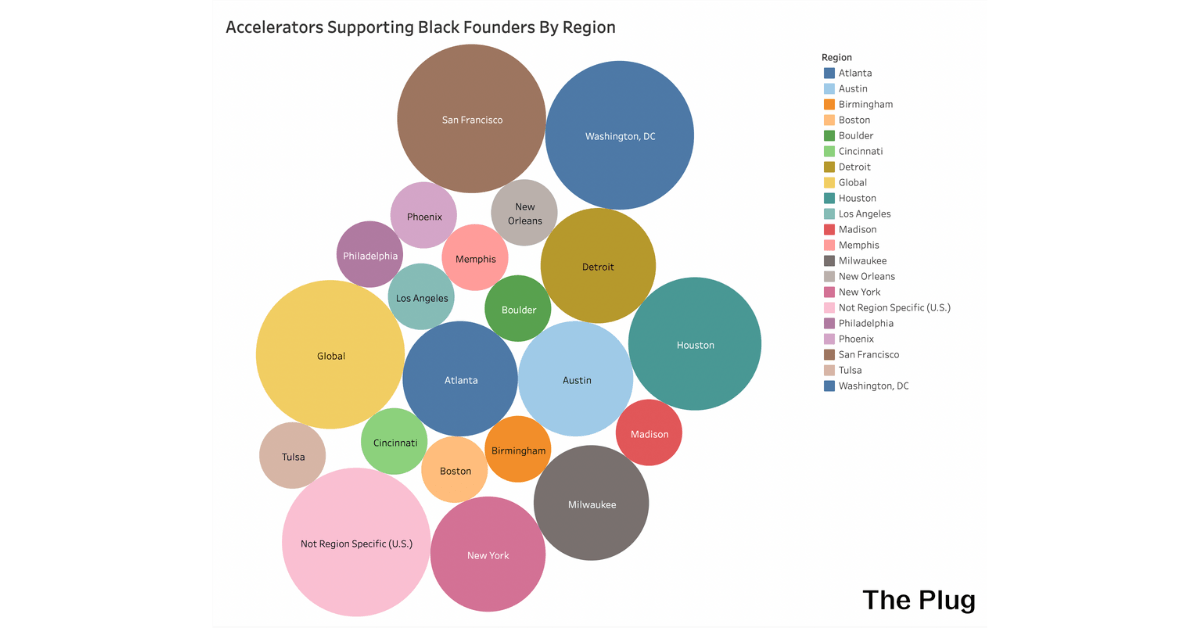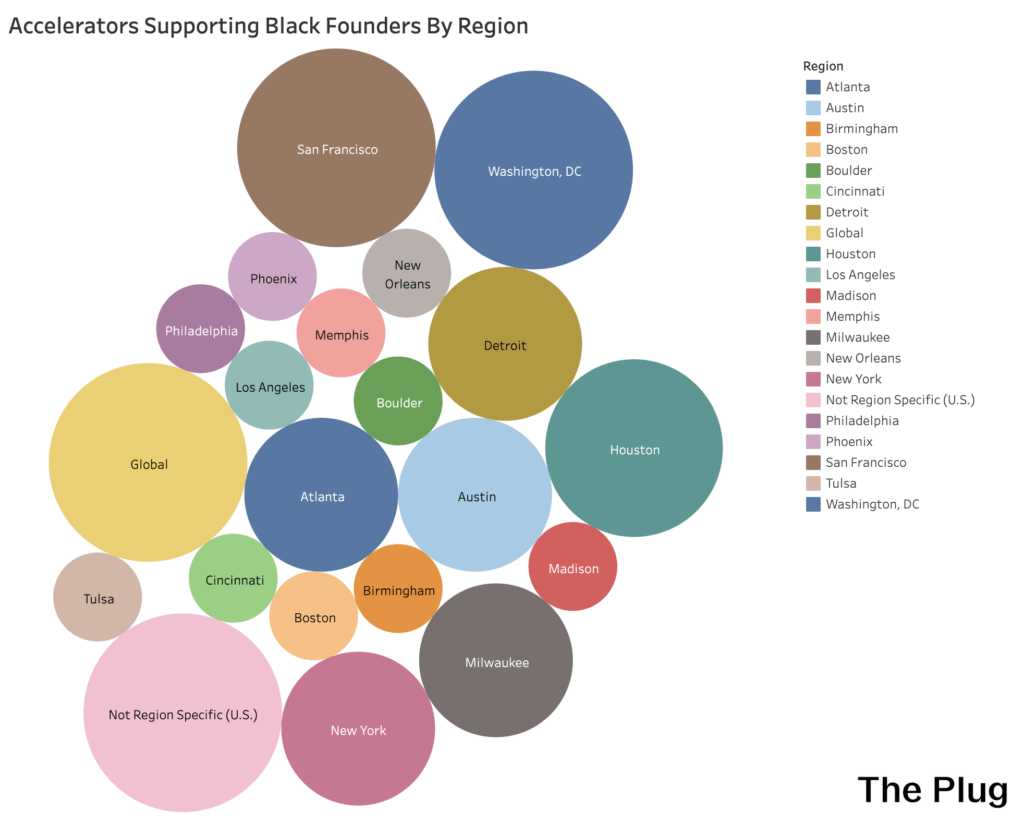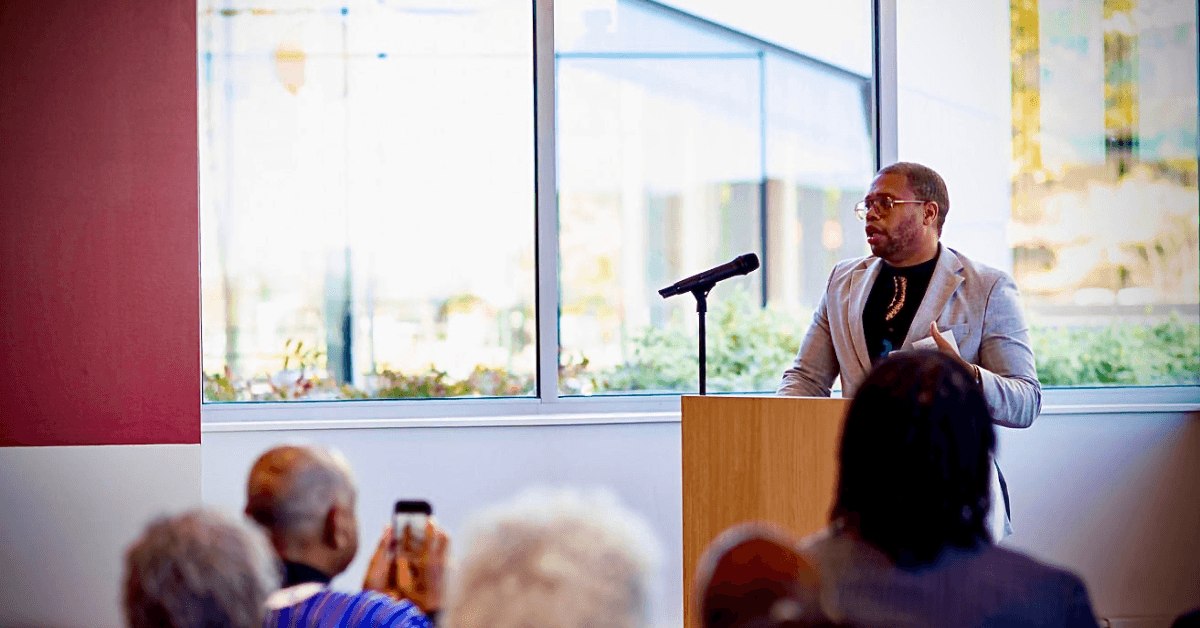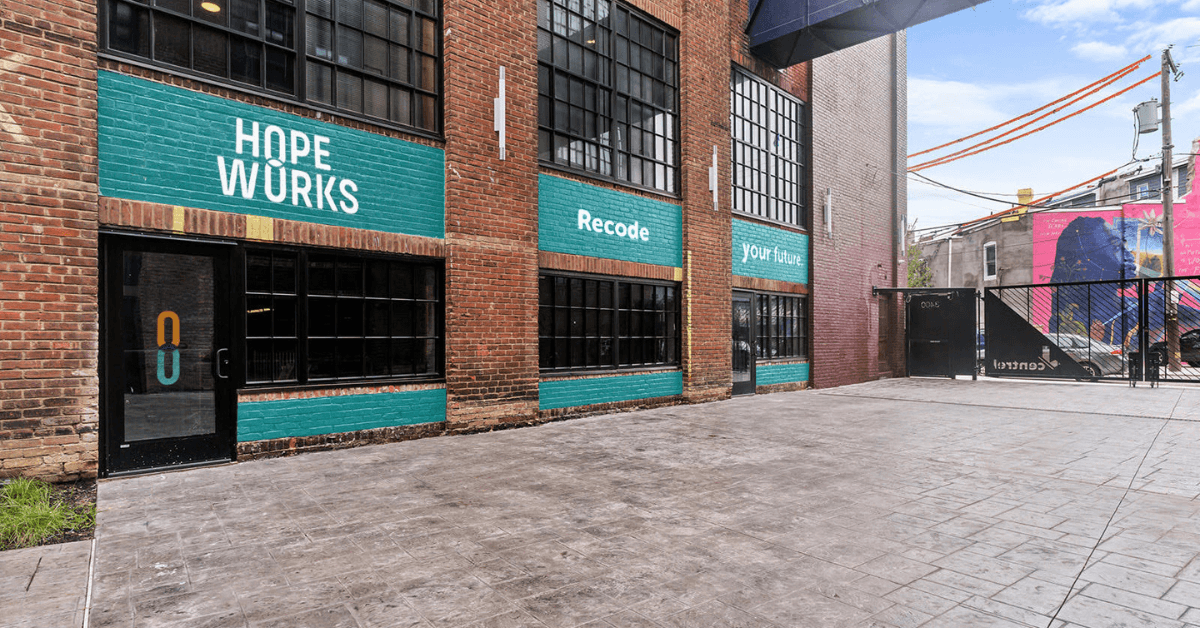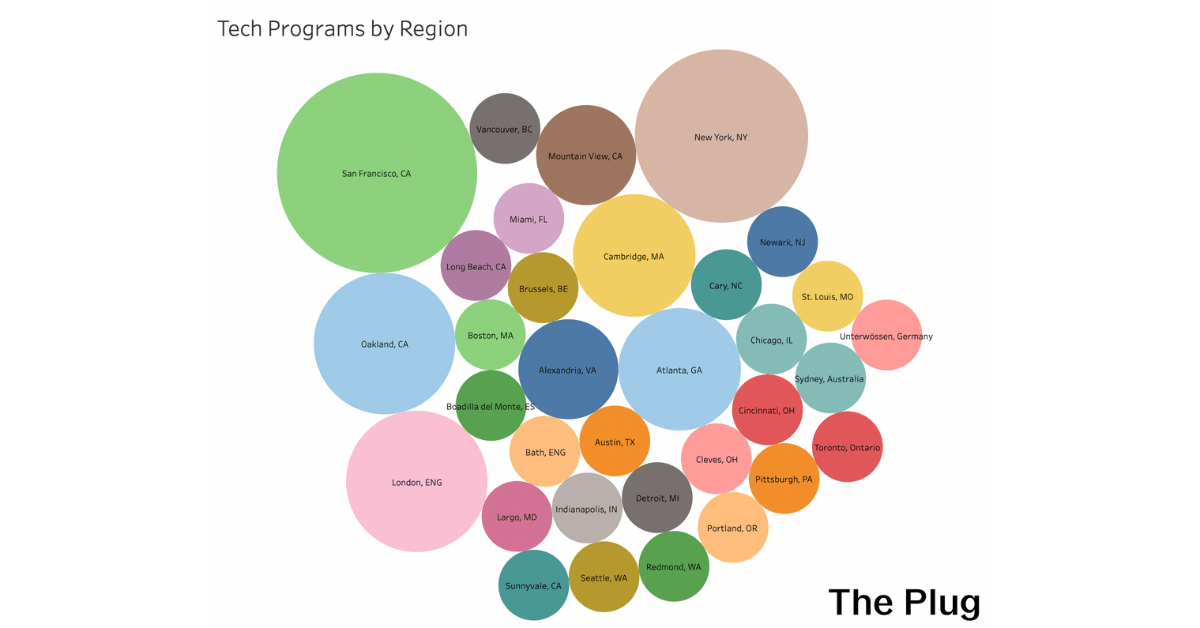Startup accelerators are a tool for founders and entrepreneurs to gain access to mentorship, capital and connections. There is no shortage of programs, so identifying the right accelerator for you and your business is critical.
Accelerator programs are linked to startup growth and investment opportunities. Between 2005 and 2015, 172 United States-based accelerators invested in more than 5,000 startups with a median investment of $100,000, according to a Brookings Institute report. However, equitable opportunities for underrepresented founders remain hard to find.
In recent years, new waves of programs have been launched to mitigate this disconnect. The Plug has compiled a database detailing over 40 accelerators supporting Black founders.
Accelerator programs have traditionally been concentrated in areas that are known as technology startup hubs. Two of the top accelerator programs globally are Silicon Valley-based Y Combinator and TechStars. The Plug’s report identifies Detroit, Washington D.C., San Francisco and Houston as some of the cities with the most accelerators supporting Black founders.
Some of those accelerators include:
- Opportunity Hub in Atlanta offers several programs, including a “social good” tech accelerator designed to support diverse, early-stage software companies.
- Northwestern Mutual Black Founder Accelerator in Milwaukee invests in up to 10 high-growth startups founded by Black entrepreneurs per year.
- Lightship Bootcamp in Cincinnati, formerly known as the NewME accelerator, is a free program for entrepreneurs of color. It was acquired by Lighthouse, a Cincinnati-based portfolio service firm, in 2019.
- Act House in Tulsa has funded 17 Black and Latino-led startups and takes no equity stake in the investments.
Philadelphia is an emerging accelerator hub
In Philadelphia’s growing innovation ecosystem, founders have found support from local, regional and national accelerator programs.
Shannon Morales, the founder of Tribaja, a DEI-focused tech talent recruitment platform, has participated in multiple programs, including the idea-stage accelerator Philly Startup Leaders (PSL) and Lighthouse Labs, which focus on early-stage tech startups from which she received $20,000 in capital.
Since 2020, over 40 companies have participated in PSL’s idea-stage accelerator program for new founders. This fall, the organization also launched two new industry-specific accelerator programs: blockchain and food innovation — which have been identified as growing sectors in Philadelphia.
Comcast NBCUniversal LIFT Labs accelerator powered by TechStars also focuses on certain industries. This year, 12 startups working in immersive and inclusive technologies came to Philadelphia from across the United States and globally to participate in the accelerator.
Morales is currently participating in the Visible Hands program — her third accelerator — which supports underrepresented founders building tech startups. Of the 51 entrepreneurs selected for its second cohort, over 70 percent identify as Black, African American and/or Latinx. To reduce the barrier of entry, founders receive an initial investment of $25,000 for 2.5 percent equity.
“I utilize the accelerators to help bring me through different stages of my entrepreneurial journey because not many people like me are going through this. It’s hard to find that community, that tribe,” Morales told The Plug.

